Public events @ S3 2025
Official events
Open day

Come and take a look 👀
Lectures
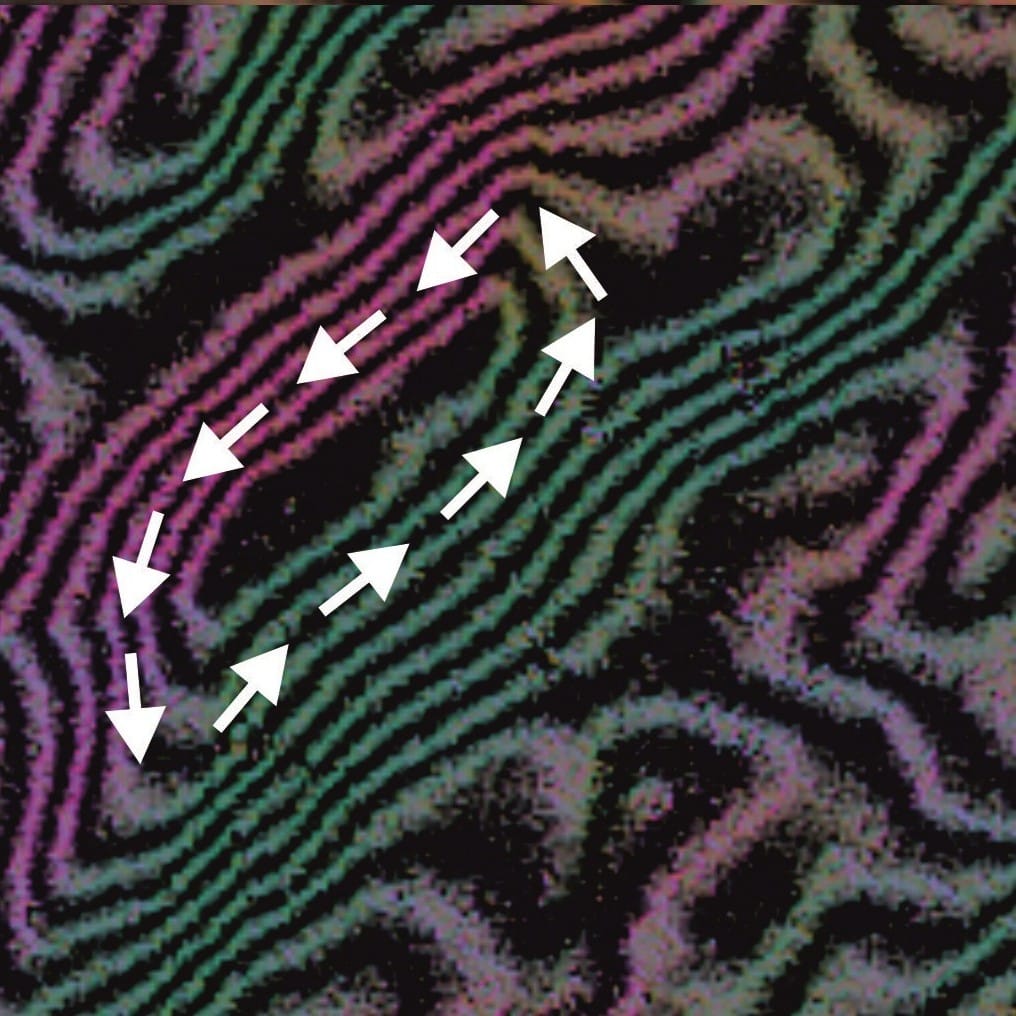
Dr. Leonardo Pierobon, Society for Out-of-Frame Education / Persona Academica, Croatia
| 21 July 2025 @ 14:30 CEST
Nanoengineered Magnets: A New Perspective through Interdisciplinary Research
Read more
Dr. Leonardo Pierobon, Society for Out-of-Frame Education / Persona Academica, Croatia | 21 July 2025 @ 14:30 CEST
Nanoengineered Magnets: A New Perspective through Interdisciplinary Research
In this lecture, you will learn about the importance of interdisciplinary approach in scientific research. Firstly, I will introduce you to the basics of magnetism and the essential role of magnets in key future technologies, such as electric vehicles and the production of green electricity. Then I will explain why conventional research has reached its limit in developing new magnets, and how I used an interdisciplinary approach combining exciting methods like electron microscopy, atom-probe tomography and micromagnetic simulations to investigate and nanoengineer magnetic materials. Finally, I will show you surprising new features I have discovered, such as magnetic vortices in SmCo magnets, and how these can be used to improve current magnetic materials.
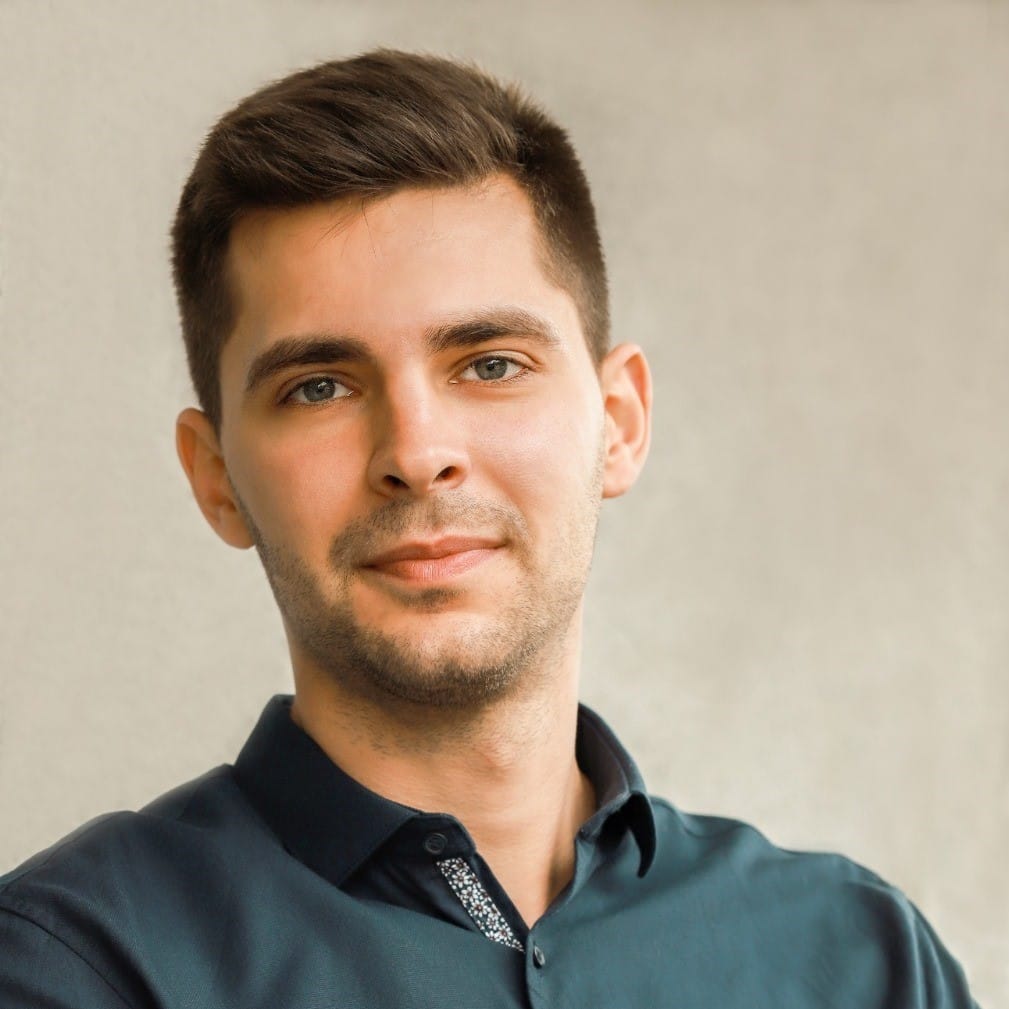
Dr. Leonardo Pierobon
Society for Out-of-Frame Education / Persona Academica, Croatia
Leonardo is a passionate educator and an activist for a greener future and human rights. He studied Natural Sciences at the University of Cambridge, specializing in Quantum Physics. He then proceeded to do his PhD in Materials Science at ETH Zurich, investigating the fascinating world of nanomagnetism. Since 2021, he has been running his own company for academic consulting, working with clients and students from all over the world. Leonardo has been involved in the organization of S3 since 2016 and is the current president of the Society for Out-of-Frame Education. He is also politically engaged, advocating for better and more accessible education, a faster transition to renewable energies, and building a more inclusive and tolerant society.

Iva Vukojević, University of Zagreb, Croatia;
Ana Barić, University of Zagreb, Croatia
| 22 July 2025 @ 20:30 CEST
Talking About Machines Talking: a Look into Large Language Models
Read more
Iva Vukojević, University of Zagreb, Croatia; Ana Barić, University of Zagreb, Croatia | 22 July 2025 @ 20:30 CEST
Talking About Machines Talking: a Look into Large Language Models
The unexpected emergence of large language models (LLMs) into the public sphere took the world by surprise and has simplified how we interact with technology and access information. Despite these benefits, their rapid adoption has also raised critical questions about the reliability, transparency, and conscientious use of this transformative technology. In this talk, we explore LLMs with the aim of highlighting key aspects essential for their responsible utilization. Specifically, we will take a closer look at the technical foundations and societal implications, fostering more informed and responsible engagement with LLMs. To provide a well-rounded perspective, we structure the discussion around three core lenses: (1) How do LLMs work under the hood? (2) What does it mean to be on the front lines of LLM-related challenges? and (3) How can we engage with LLMs critically and thoughtfully? Through this conversation, attendees will gain practical insights and critical tools to navigate the evolving landscape of LLM technology in everyday contexts (as well as in research).
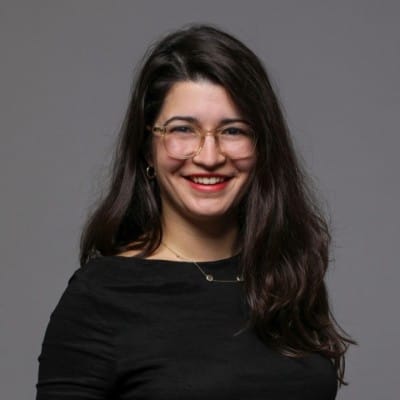
Iva Vukojević
University of Zagreb, Croatia
Iva Vukojević is a PhD student of psychology from the University of Zagreb working in the interdisciplinary field of combining psychology with natural langauge processing. Her research centres around studying human behaviour based on textual footprint, with an emphasis on personality and its related constructs. Her PhD topic is on stylistic textual signals reflecting the adaptive mechanisms of maintaining a positive self-view. She made research visits and is collaborating with the Copenhagen Center for Social Data Science, University of Copenhagen and Digital Humanities Lab, University of Basel.
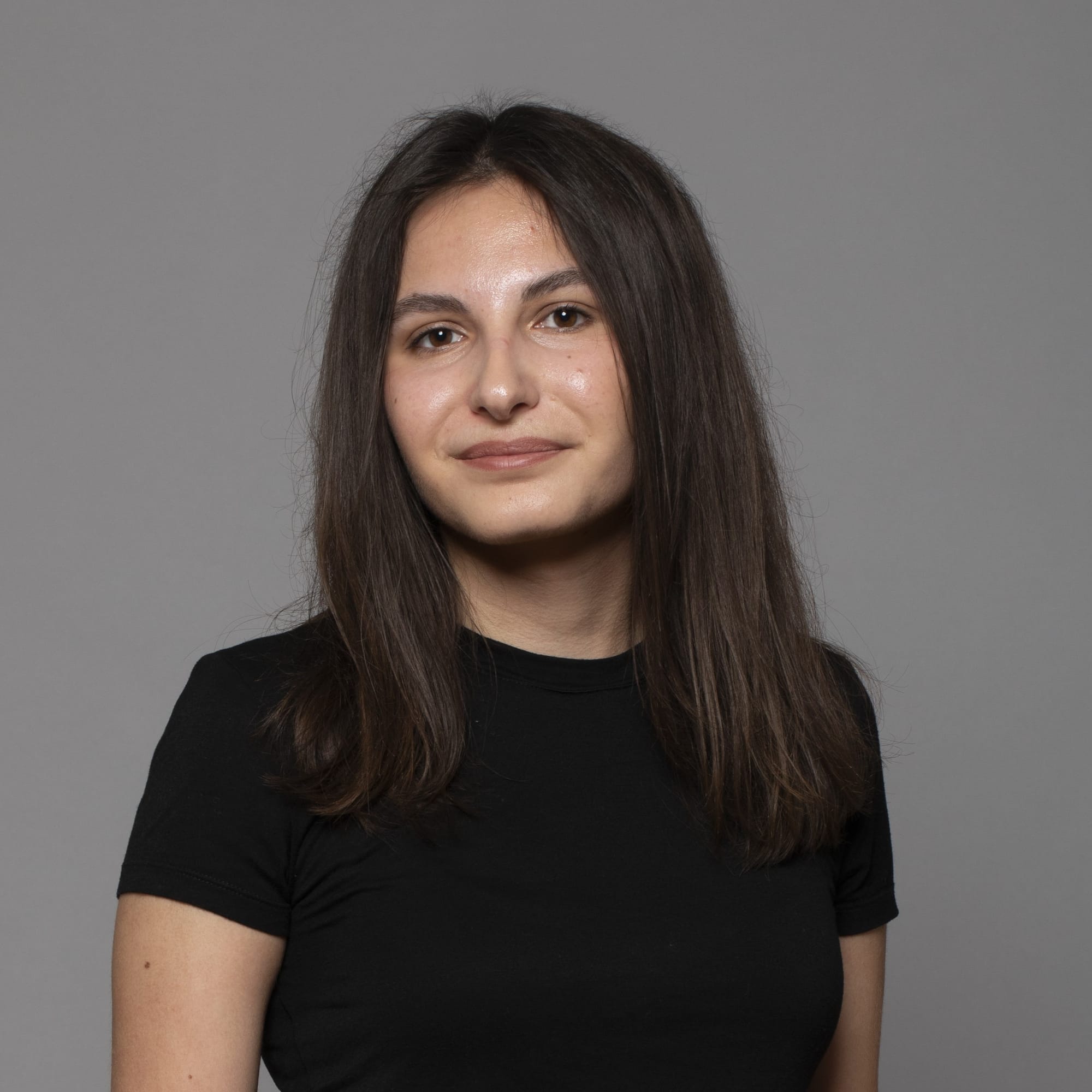
Ana Barić
University of Zagreb, Croatia
Ana Barić is a PhD student in computer science at the University of Zagreb. Her research focuses on natural language processing (NLP), with a particular emphasis on understanding uncertainty in language models. Her other interests include model explainability and connecting model internals to various topics in computational social science. Previously, her work has explored sentiment analysis and the political perspectives of large language models.

Dr. Krešimir Šola, VIB-UGent Centre for Plant Systems Biology, Ghent University, Belgium
| 23 July 2025 @ 14:30 CEST
Putting Nature’s Chemists to Work: Applications and Engineering of Plant Metabolism
Read more
Dr. Krešimir Šola, VIB-UGent Centre for Plant Systems Biology, Ghent University, Belgium | 23 July 2025 @ 14:30 CEST
Putting Nature’s Chemists to Work: Applications and Engineering of Plant Metabolism
Plants produce a wide variety of complex chemicals that appear in small amounts in healthy plants but are produced in response to challenges from the environment, such as infections. These chemicals are called specialised metabolites, and we have found uses for them in industries ranging from pharmaceuticals and food to cosmetics. In the first part of the lecture, we will look at some interesting cases of how plant metabolites are used and how their uses were first discovered. These chemicals are often complex and difficult to synthesise in laboratories, so we currently rely on plants to produce them for us. We will examine the science behind metabolic engineering, which involves discovering genes and enzymes directly involved in the production of metabolites, as well as genes and proteins that regulate when those metabolic pathways are switched on. Once we understand metabolism and its regulation, we can apply this knowledge to engineer plants that produce more of the high-value specialised metabolites. In the second part of the lecture, we will examine the general idea behind plant metabolic engineering and explore different strategies we can use to achieve this goal.
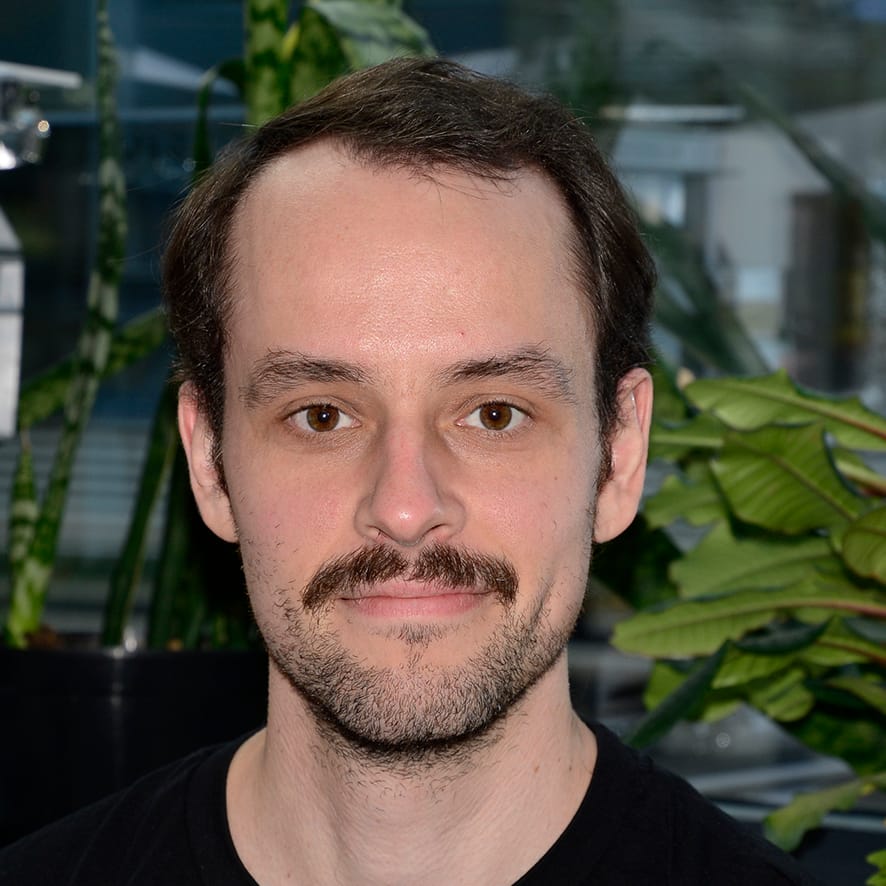
Dr. Krešimir Šola
VIB-UGent Centre for Plant Systems Biology, Ghent University, Belgium
Krešimir is a Marie Skłodowska-Curie Postdoctoral Fellow at the Flemish Institute for Biotechnology (VIB) in Ghent (Belgium). He did his BSc in biology at the University of Zagreb (Croatia), followed by a PhD at the University of British Columbia in Vancouver (Canada) where he studied plant cell walls. Following three years of postdoctoral research on metabolism of green leaf volatiles and their roles in communication between plants at the University of Amsterdam (the Netherlands), he joined VIB where he currently works on regulation and engineering of plant specialised metabolism. His current scientific interests revolve around plant metabolites – how they are made, how their production is regulated, and why they are made at all.

Dr. Ivan Barun, MD, MA (Arts), MSc (Psychology), University Psychiatric Hospital Sveti Ivan, Croatia
| 25 July 2025 @ 20:30 CEST
Neuroscience of Creativity and How to Unlock It
Read more
Dr. Ivan Barun, MD, MA (Arts), MSc (Psychology), University Psychiatric Hospital Sveti Ivan, Croatia | 25 July 2025 @ 20:30 CEST
Neuroscience of Creativity and How to Unlock It
What exactly is creativity – and why is it so important, not only in art, but also in science, technology, and everyday life? How does our brain generate new ideas, connect distant concepts, and arrive at insights that change the world? In this lecture, we will explore creativity as a fundamental human ability, examine the function of the prefrontal cortex and other brain regions involved in the creative process, and consider why dopamine is crucial for those “aha!” moments. Contemporary cognitive neuroscience shows that creative thinking is the result of dynamic collaboration between different neural networks – some linked to introspection and imagination, others to focus and the evaluation of ideas. In an interactive and experiential setting, we’ll also discuss how to boost our own creativity, why scientists are often also artists, and why creative thinking is essential for solving the complex problems of the future.

Dr. Ivan Barun, MD, MA (Arts), MSc (Psychology)
University Psychiatric Hospital Sveti Ivan, Croatia
Ivan is a psychiatrist, visual artist, and expressive arts therapist whose work bridges medicine and creativity. Currently based at the University Psychiatric Hospital Sveti Ivan in Zagreb, he combines clinical psychiatry with body-oriented psychotherapy and art therapy, working with different patient populations and focusing especially on LGBTQIA+ mental health. Ivan graduated medicine at School of Medicine in Zagreb and fine arts at Academy of Fine Arts in Zagreb. He has published and presented extensively on the therapeutic role of the arts. He is also an exhibiting artist and former editor-in-chief of Skica, a magazine dedicated to art and culture.
Workshops
Reducing Waste in the Fashion Industry Through Computer Vision
Clothing is one of the most visible parts of our daily lives, but behind the scenes, the fashion industry is also one of the most wasteful. Consider this: online retailers report that up to 30% of clothing purchases are returned, contributing to massive waste, from excess shipping to discarded garments. Artificial intelligence has the potential to transform fashion throughout the production chain. It can simplify the design process, help optimize fabric usage and visualize outfits for customers before buying. The key to these innovations? Computer vision, the technology that allows machines to "see" and understand images.
In this swapshop, we will break down the science behind computer vision and generative AI, experiment with pre-trained models, and evaluate their real-world usefulness. You’ll even apply these tools to two key challenges. The first is Virtual Try-Off, where we want to generate clean product images from model photos. The second is Virtual Try-On where we aim to transfer garments between people in images. By the end, you’ll understand how AI could make fashion more sustainable and where the tech still falls short.

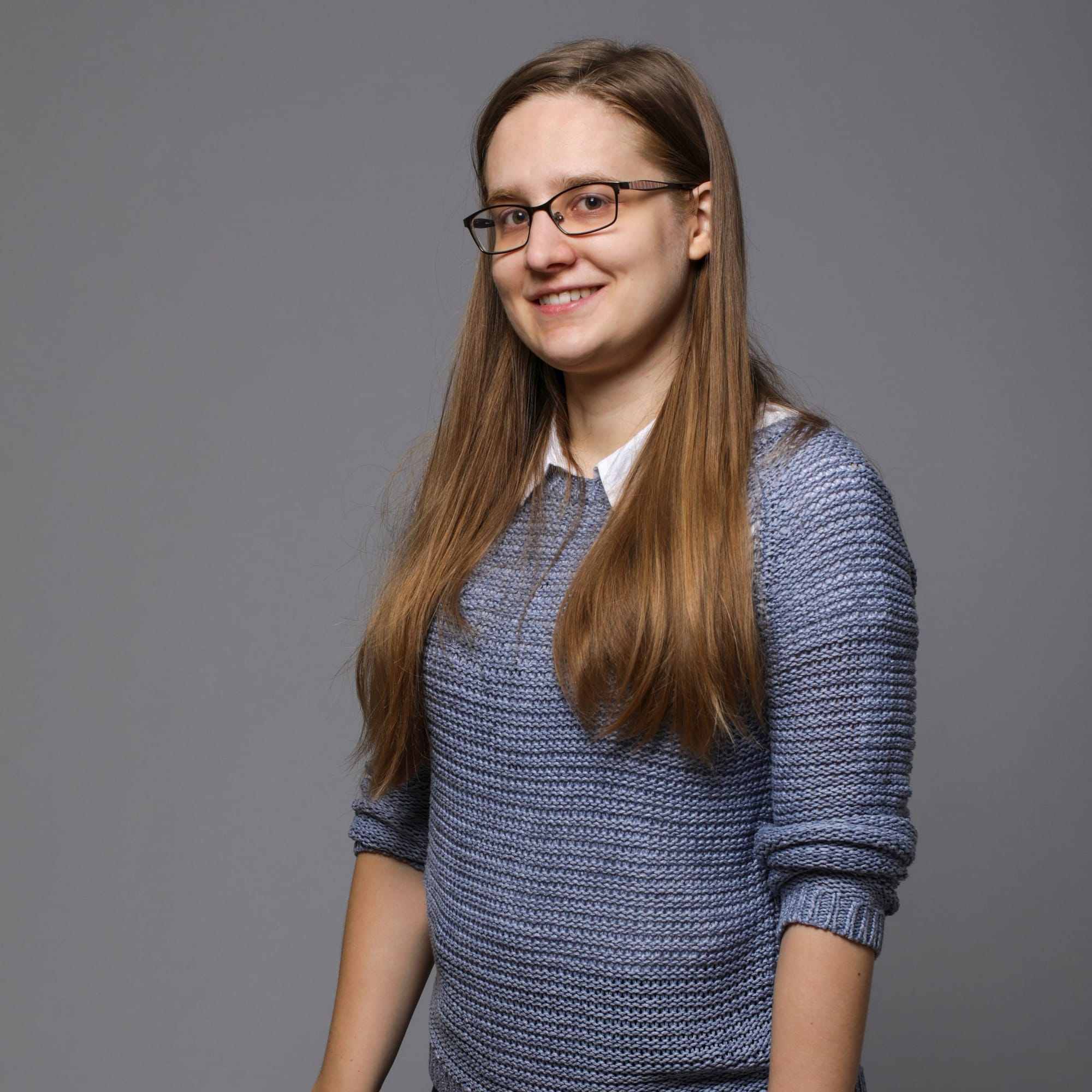
Petra Bevandić
Faculty of Technology, University of Bielefeld, Germany
Petra is a post-doc at the Faculty of Technology at the University of Bielefeld. Her research is in the field of image analysis, primarily of road driving images. She focuses on improving model robustness for real-world applications. Currently, she is trying to figure out how to automatically connect visual concepts across multiple datasets to train general-purpose models. Outside of work, she enjoys crafts, classic movies, books, yoga, and pub quizzes.
Bacterial Casino
What do bacteria and gamblers have in common? They both rely on random numbers! In this workshop, we’ll explore how randomness – something that might seem messy or unpredictable – actually plays a key role in both biology and physics. You’ll learn about Brownian motion – the tiny, jittery movement of particles floating in a liquid. Even though each particle moves randomly, together they create patterns we can predict. This is how diffusion works, and it’s one of the most important natural processes, especially inside living cells.
Along the way, you’ll get an intro to probability, statistics, and statistical physics – a branch of physics that helps us understand how large groups of things behave, like molecules in a cell or even sheep in a herd! You’ll get a glance of how physics and maths help scientists tackle real-world problems in biology, from how cells grow to how medicines spread through the body – or even how cancer develops. Bring your curiosity (and a bit of luck), and get ready to roll the dice!
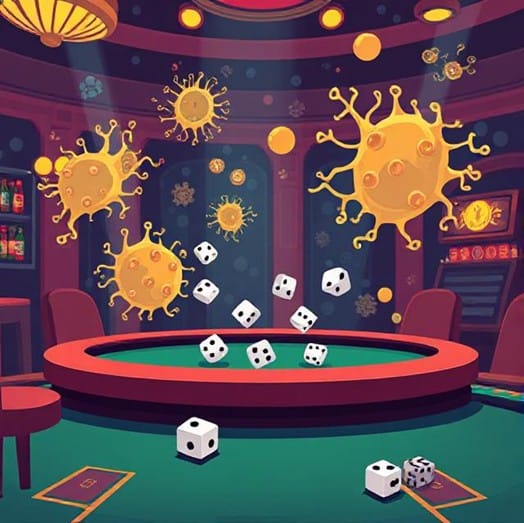
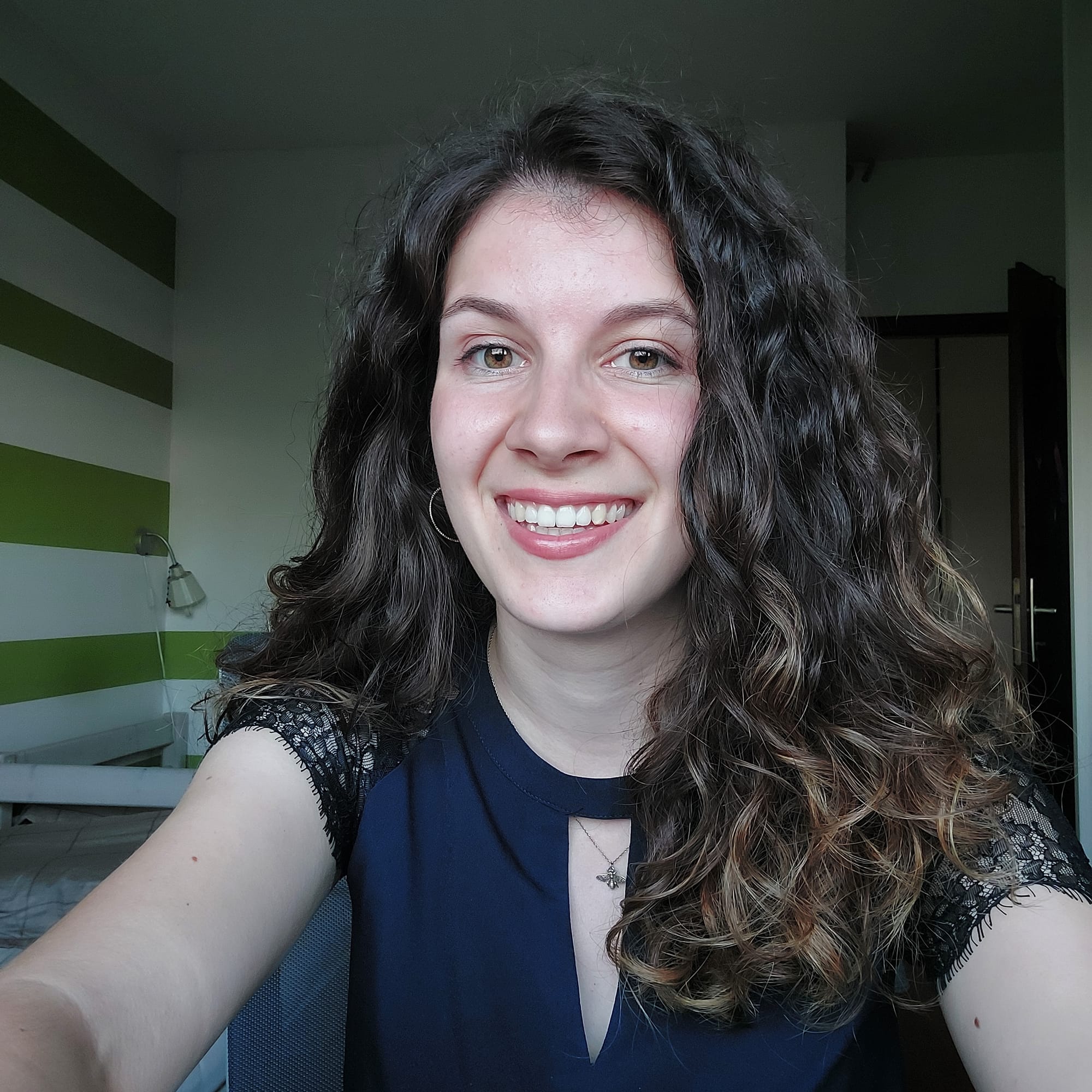
Maja Milas
Ruđer Bošković Institute, Croatia
Maja is currently doing a PhD in physics in Zagreb with a bunch of other people who took their curiosity about the world a bit too seriously. Her path to physics was anything but linear. As a kid, she wanted to be a chef or cake artist (still a solid backup). Later in high school, she was all about coding competitions and was pretty sure she’d end up in IT. But as graduation approached, she had a mini existential crisis: "do I really want to write boring code in an office forever"? Hard no. So she chose physics – and now she writes code in an office... but for science! Zero regrets though (unless we’re talking about housing prices). She did a side quest (she means, Master’s) on gravitational waves but somehow ended up in Vienna, where she (accidentally) fell in love with biophysics. Now she's doing theoretical biophysics (or at least trying to), working with biologists, chemists, and engineers to figure out how those sneaky little cells do their thing. Outside the lab, you’ll find her hanging with friends and family, dancing at socials, or checking cheap flights like it’s her second PhD.
What Can RNA Sequencing Tell Us About Cancer?
RNA sequencing is one of the most powerful tools in cancer research. It helps scientists understand what is happening inside cancer cells, which is very important when developing anti-cancer therapies. In this swapshop, you will step into the shoes of a cancer researcher and explore how tumors evolve and adapt to treatment through interactive data simulations. You will learn what RNA-sequencing is, what makes cancer cells so unique, and how therapy can sometimes drive the emergence of resistant cancer cell clones. No prior programming experience is needed – only curiosity!
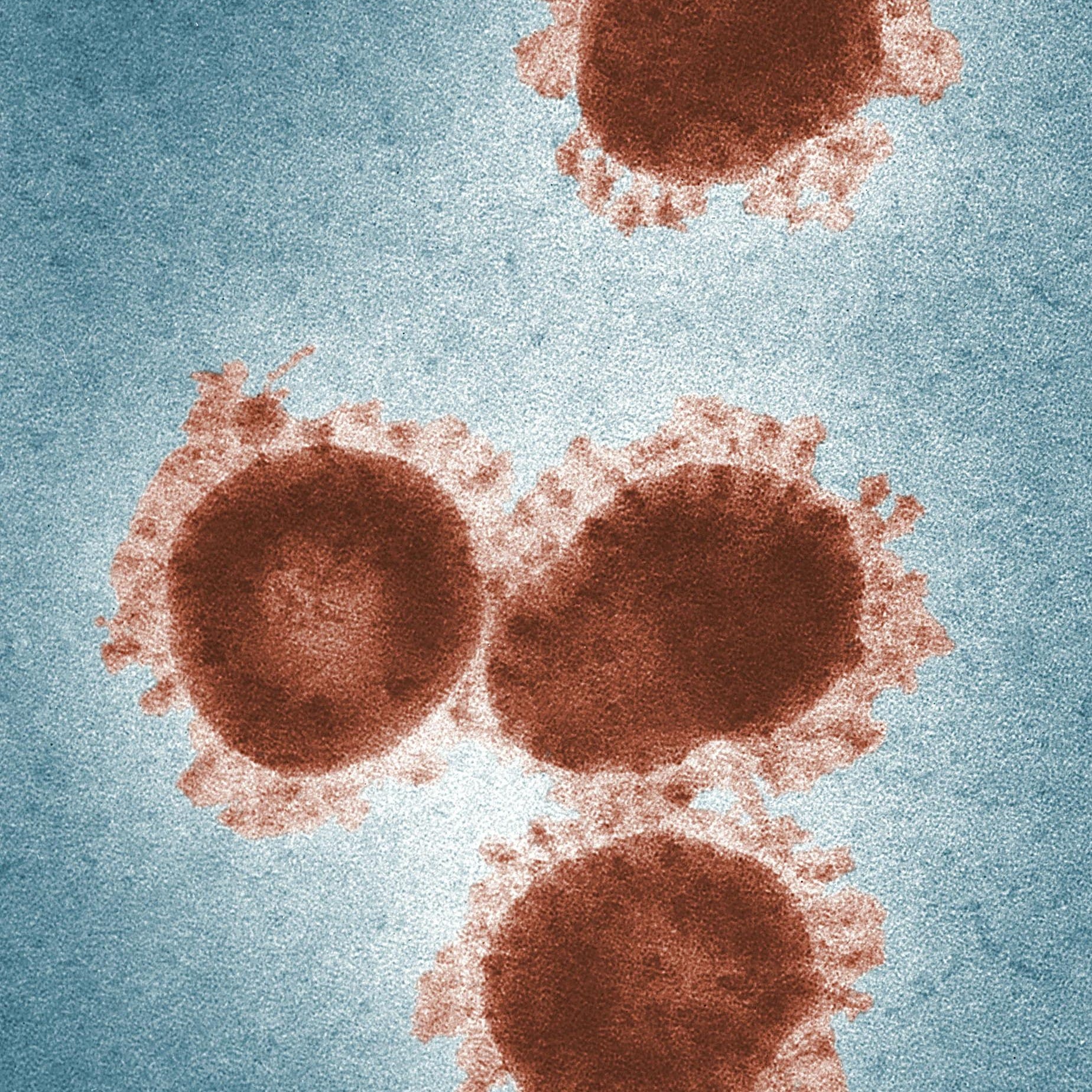
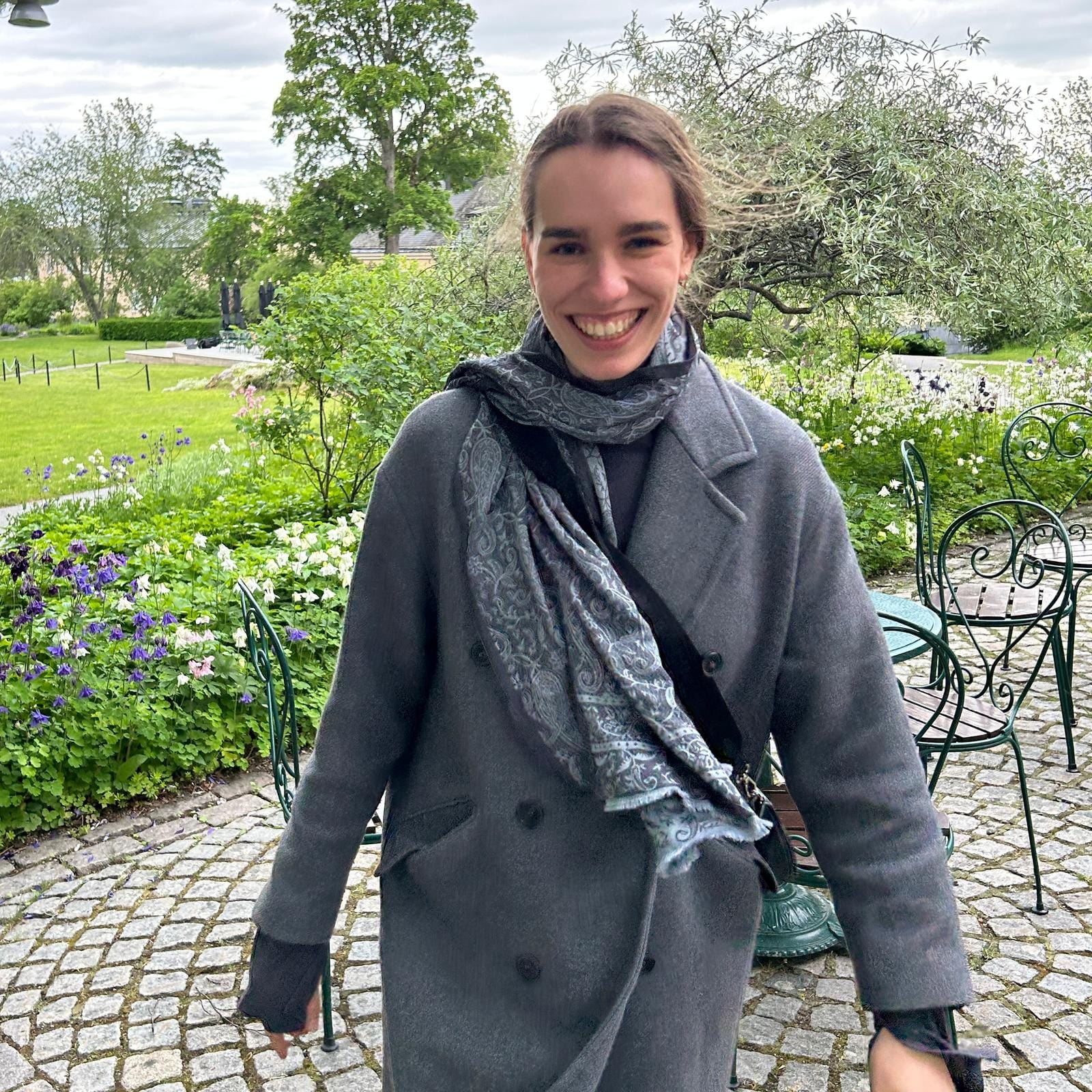
Marta Paladin
Uppsala University, Sweden
Marta grew up in Zagreb, where she also earned her bachelor’s degree in Molecular Biology. She was motivated to apply this knowledge in a medical context, which led her to Sweden to pursue a master’s in Medical Research at Uppsala University. She graduated just a few weeks ago — and she already misses it! This summer, she's spending some time in Croatia, and she's really looking forward to leading a swapshop and getting to know you. She actually participated in this summer camp herself back in 2018, after finishing her third year of high school. She claims it remains one of the best experiences she's ever had, and she truly hopes your time at S3 becomes just as memorable for you!
Exploring Blood Group Systems
Welcome to the world of immunology, where the intricate mysteries of blood groups are unlocked. In this fascinating field, we delve into the complexity of blood groups, deciphering their significance and understanding their role in our immune system. While most people are familiar with the ABO system, it’s just the tip of the iceberg. In fact, scientists have identified 44 different blood group systems, including Rh, Kell, Duffy, and many others. And what does that mean? Where do we use this knowledge? Do animals have blood groups? Well, let's leave this for our workshop.
This workshop will introduce the science behind blood typing, the immune responses linked to compatibility, and the real-world applications in medicine, genetics, and even forensics. Expect hands-on activities, engaging discussions, and surprising facts that may change the way you look at a drop of blood forever.
Curious to know more? Great! Because that’s exactly what we’ll uncover together. Let’s save the deep questions, and some fascinating experiments for the workshop. Come ready to learn, question, and explore!
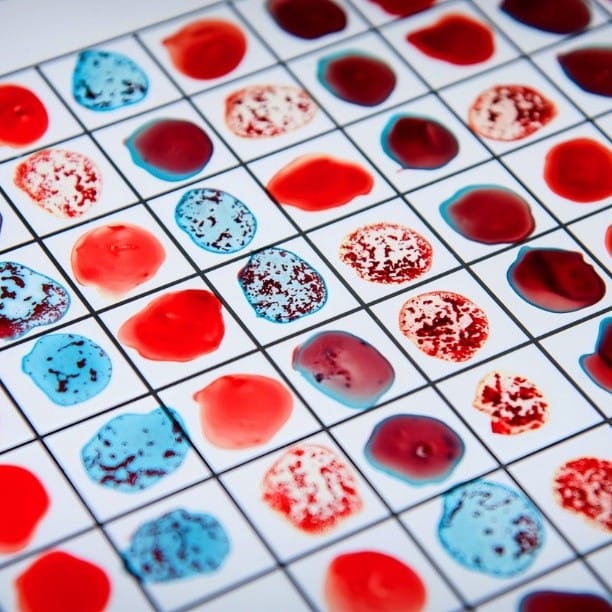
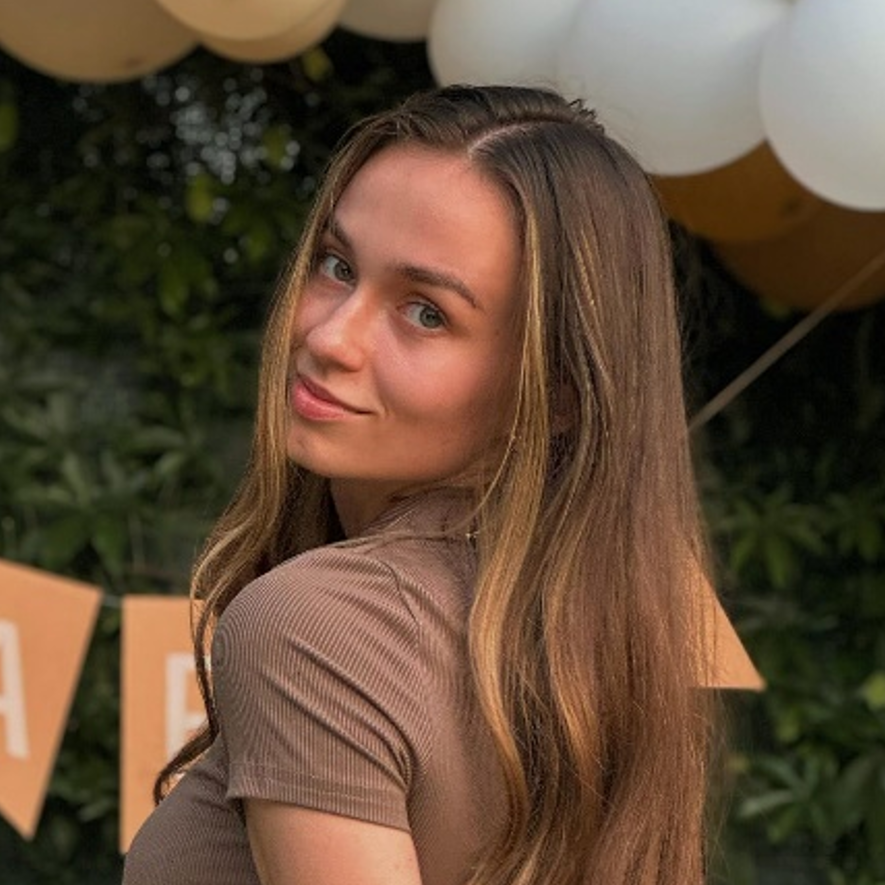
Karla Trampus
Josip Juraj Strossmayer University of Osijek, Croatia
There are not enough hours in a day for all the hobbies Karla would like to pursue. Her interests range from photography, ornament-making, and reading books to watching TV shows and volunteering. She has always been in awe of how things around her function, especially the human body and mind, which led her to choose medicine as her field of study. Karla is currently a fifth-year student at the Faculty of Medicine in Osijek and hopes to never lose her insatiable curiosity, the driving force behind everything she does. In the summer of 2023, she worked as a technical assistant at S3, and this year, she has the opportunity to contribute as part of the organizing team. The Summer School of Science is not her first experience with summer science camps - she loved participating as a child and is eager to help bring one to life.
Redox Properties of Peracetic Acid
Peroxy acids are reagents widely used during organic synthesis. They are mostly used in electrophilic reactions with molecules containing double bonds and in certain rearrangement reactions which often serve as steps in a more complex organic synthesis. No matter the mechanism, the reaction ends up being a redox process. That may beg the question, in what other reactions can peroxy acids serve as oxidants? The answer is connected to a, usually slow and boring, phenomena well known to everyone, corrosion! During this workshop we aim to speed up the redox reactions connected to corrosion and maximize the destruction! After the rust has settled, we will try to be creative with some controlled destruction.
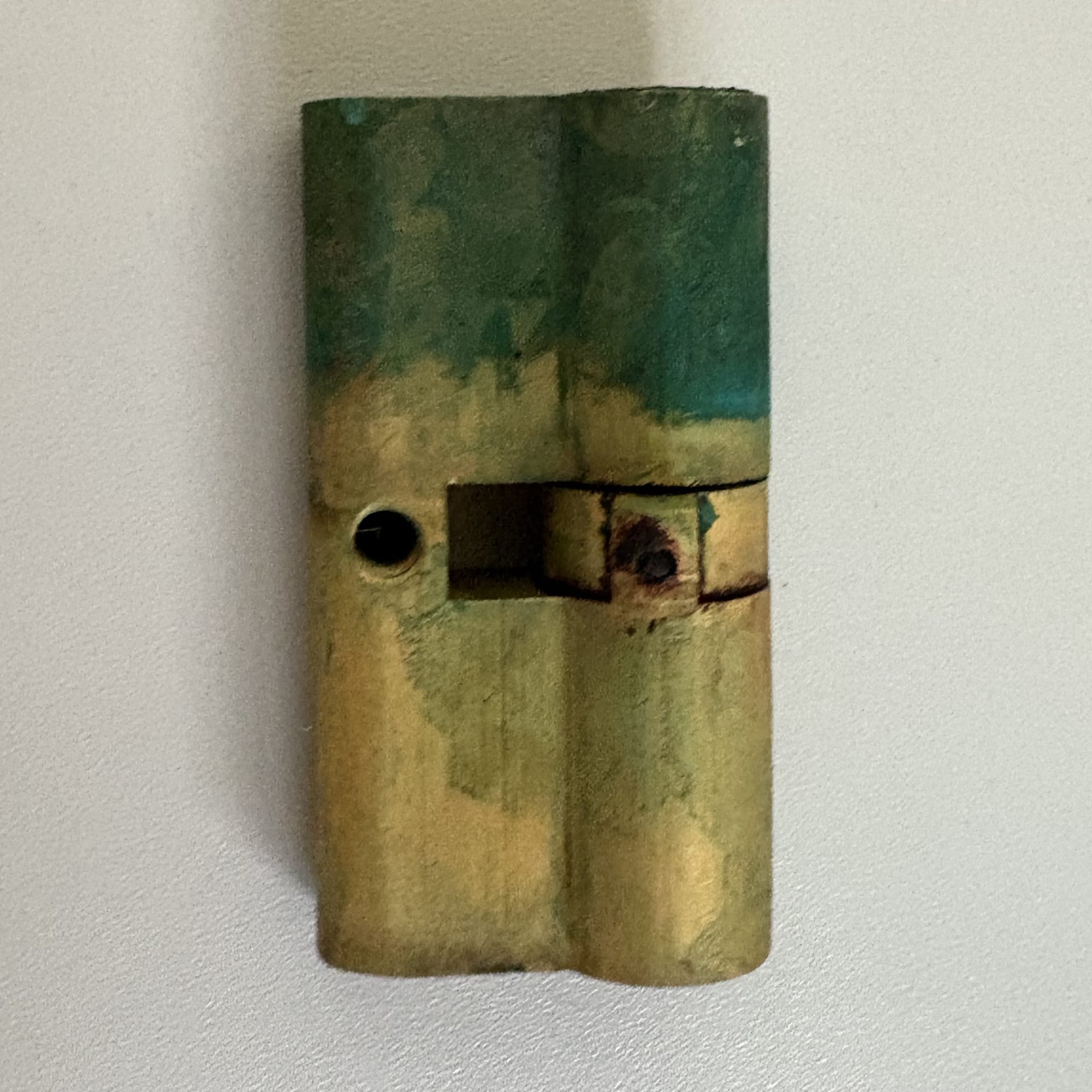
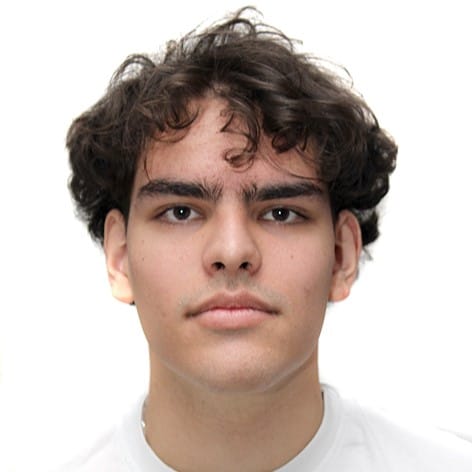
Marko Pećina
University of Zagreb, Croatia
Marko is a third-year chemistry student at the faculty of science here in Zagreb. During his free time he enjoys reading sci-fi, listening to music, solving organic synthesis problems and spending time at the pub with friends. When it comes to chemistry he’s mostly interested in the branches of physical and organic chemistry, especially the reaction kinetics and mechanisms of organic reactions.
Arduino PID: The Steady State
Have you ever wondered how your air conditioner maintains a precise temperature, or how a drone steadily hovers in place? It is often thanks to the widely used PID controller! PID, meaning Proportional-Derivative-Integral, is a fundamental algorithm used in numerous industry applications and closed loop systems, such as temperature control in reactors and distillation columns or flow control of fluids through pipes, pumps, and valves.
In this workshop we will assume basic knowledge of Arduino, cover some analog sensor and motor basics and focus on closed loop-systems employing PID regulation. We will work together incrementally creating our own PID regulator in Arduino IDE and using it to balance a ball on a lever. Finally, well get familiar with Arduino’s own PID library.

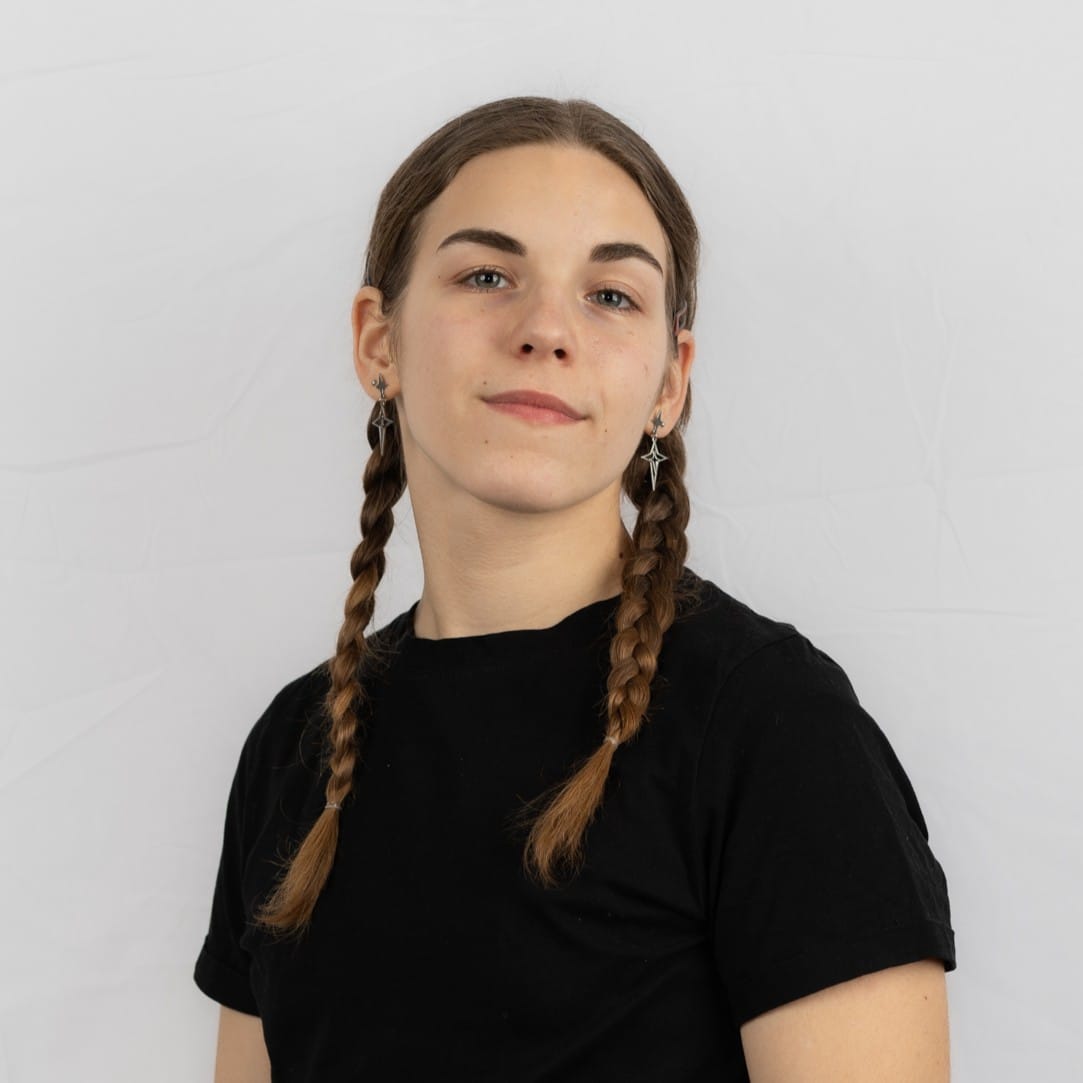
Veronika Pejić
University of Zagreb, Croatia
Veronika is an electrical technician currently on her second year of a Bachelor programme for Electrical Engineering and Information Technology. She holds a deep passion for energetics and has a strong commitment to sustainable development. For anyone expressing interest in the technical sciences, she’d be more than happy to share her knowledge. In her free time, you’ll find her drawing or spending time in nature.
Talk Dirt to Me
All throughout history, people used earth to build their homes and shelters. Today, over a third of the world's population lives in earth structures, so why is it not so common to build with earth?
In this swapshop I will introduce you to architecture and how science is applied to it. We’re going to see why someone would want to build something from earth and what are the structures that can be built from it. As everything has their bad characteristics, we are going to go over them and how they can be overcome or fixed.
We’re also going to make our own mixture for rammed earth and test how well we did.
Earth architecture is closely related to human ecology, so if that’s something you’re interested in and want to extend your horizons, you’re welcome to join me.


Tena Korov
Josip Juraj Strossmayer University of Osijek, Croatia
Tena has always been a creative soul until she discovered mathematical tournaments. Although her participation in every of them was bribed by a chocolate bar, she got quite good and that's where love was born. Later on she would start drawing in her free time which in the end led her to combine her biggest aspirations into one. Most of her time as a teen, Tena spent studying for competitons ranging for mathematics and Croatian to art and volleyball. In spite of being a student at the Faculty of Civil Engineering and Architecture where she's studying Architecture and Urban planning, she still finds time to tutor and write for architectural magazines. She loves listening to music that's why she is no stranger to frequent concerts which often include travelling a long way. Tena is communicative and friendly so it doesn't suprise us that she took part in few Erasmus+ projects, led the "Bourek - one man, three cities" project and went to OBC camping centre. As a people person she takes any given opportunity to volunteer. Her brother is her role model, so, when she saw he was organizing the Summer School of Science, she decided to join in and take on the role of a technical assistant, which she is reprising in 2025.